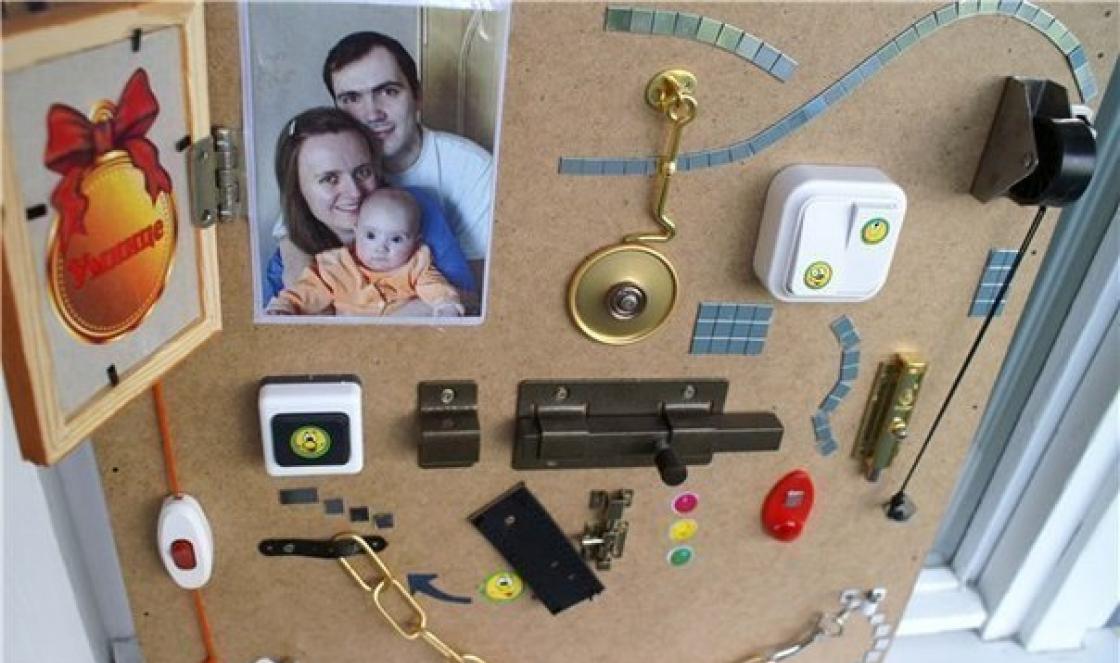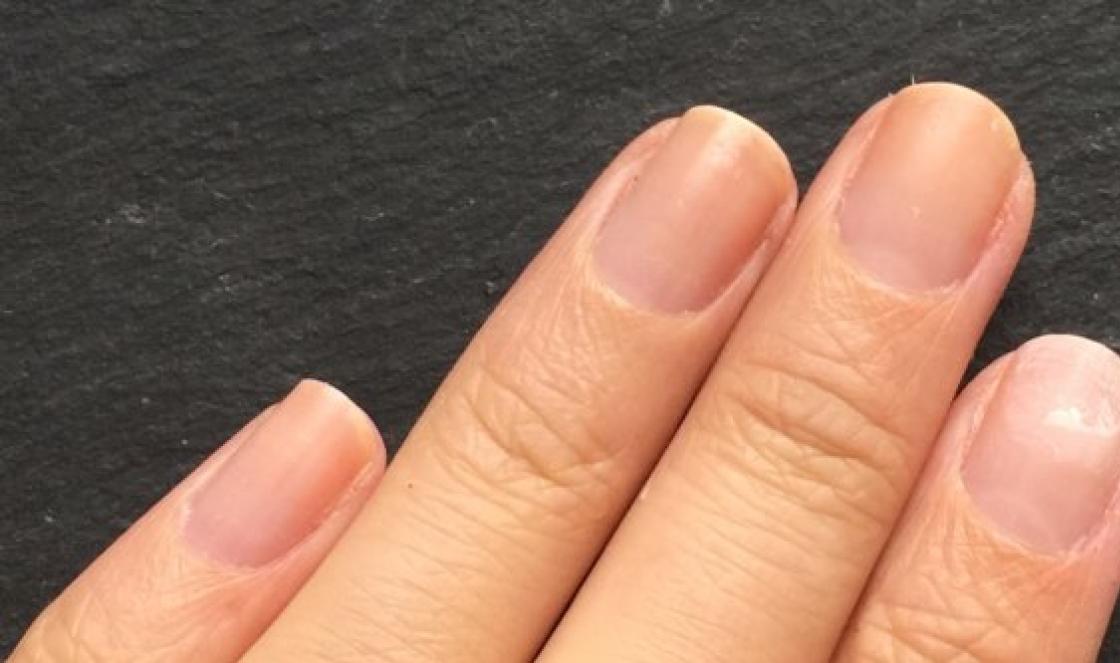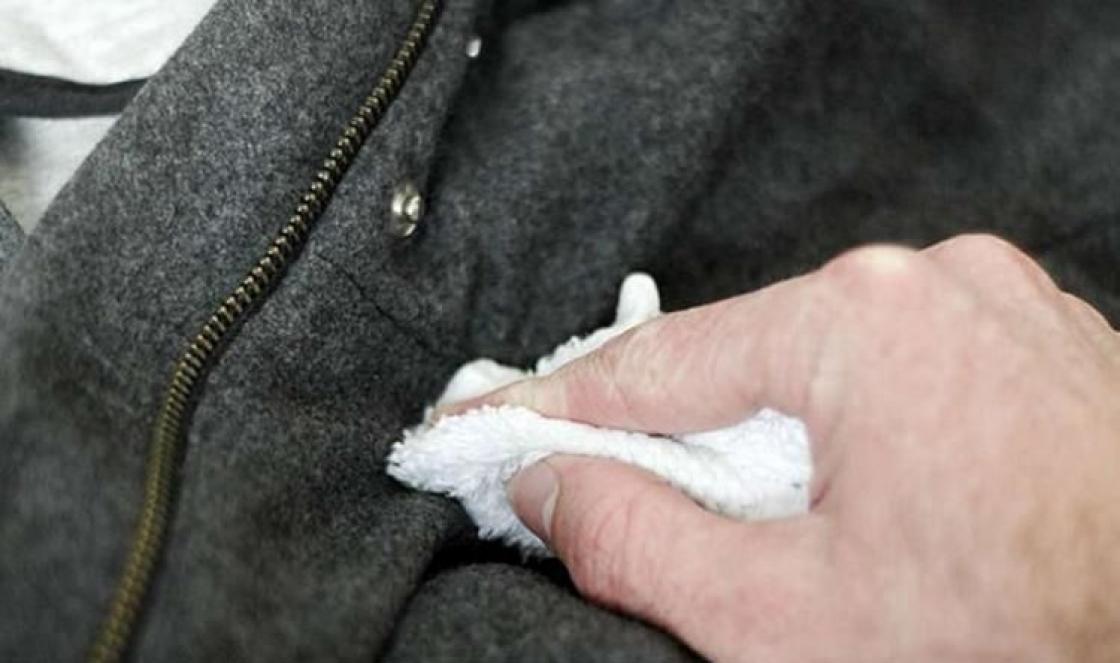A newborn baby needs his mother around the clock, because he may need something at any moment. However, gradually the child grows up, becomes more independent, and develops his own interests, even if it’s just a new car or bright blocks. By this time, parents begin to gradually get tired of their duties and the enormous responsibility associated with the birth of a baby. A short vacation, spent just the two of you, could be a great solution, but moms and dads are afraid to leave the baby.
Rambler/Family finds out at what age a child can be left in the care of a grandmother or nanny.
Analyzing the situation
Of course, every child is individual: some up to three or four years old cannot spend even an hour without their mother, while others already feel quite good in the company of other adults from the age of six months. Even among specialists in the field of child psychology, there is no consensus on at what age a relatively long separation from parents can be safe for a baby.
Therefore, in order to understand whether such a separation would be too strong a blow for the fragile child’s psyche, Olga Kuznetsova, a psychologist at the Yauza Clinical Hospital, advises taking into account several main factors. Important question- whether breastfeeding has stopped.
“It is believed that separation from a baby who has stopped breastfeeding less than two months ago can have a negative impact on his emotional state: the simultaneous departure of the mother and weaning is too serious a change for the baby. These two events can become intertwined in the child’s mind and negatively affect the development of his personality in the future.”
However, even a baby who has been formula-fed since birth may experience serious problems when separated from his mother - this depends on the type of attachment that he has formed in relation to her. Defining it, says psychologist Olga Kuznetsova, is quite simple: “If a child gets upset when his mother leaves, but at the same time knows how to occupy himself during her absence and is happy to return, this means that he has formed a healthy attachment and there are no pathologies in their relationship. If the baby is hysterical when he sees that his mother is getting ready, cannot find a place for himself without her, and at the next meeting behaves aggressively and vindictively - this is a reason to think that something is going wrong. Perhaps the child feels excessive maternal care and feels unprotected without her.”
We create favorable conditions
child with mother
Even if, after taking a closer look at your baby, you realized that he gets along well with other adults and does not feel a painful need for the constant presence of his mother, implementing the idea of going on vacation together will require some preparation. First of all, you need to decide on a suitable person who will be ready to take responsibility and stay with the child during your trip.
He needs to be devoted in as much detail as possible to all the features of the baby’s daily routine and behavior. Tell your grandmother or nanny how your day with your baby is structured: what time does he wake up, when and what is he used to eating, what does he usually do in the first and second half of the day, what time does he go to bed and how long does he sleep during the day, where and how long do you usually walk, how your evening bath and going to bed - all these details can play an important role in providing your child with the usual comfortable life in your absence.
Do not forget to also instruct your “deputy” on how to behave in force majeure situations - if the child has a fever, an allergy, or he is simply capricious and does not want to go to bed.
If you plan for a nanny, grandmother or other relative to move in with you during your absence, then your child will not have to get used to the new place. If the child goes to new home, then think in advance about adapting the baby himself to the conditions in which he will spend a week or more. In the time remaining before your vacation, try to visit more often so that your child gets comfortable with the new place. Some experts prefer this option, since at home the baby may feel the absence of his parents more acutely, while in another environment he will be less likely to remember them.
Go and come back
So, the suitcases are packed, the grandmother (or nanny), instructed and armed with all the necessary equipment, is ready to devote herself entirely to the baby during your absence, and the child himself plays happily in her arms. All you have to do is get to the place to spend a few unforgettable days together.
For a full-fledged vacation, it is better to choose a place where you can simultaneously relax, unwind, and actively relax - that is, embrace all possible impressions. In Florence, for example, you will find echoes of the great past, harmony and tranquility of quiet European streets, noisy fun in central establishments and, of course, romance - here it is literally in the air. In a week, you will not only have time to visit all the museums of the capital of Tuscany, but also enjoy each other’s company - as if you were on your second honeymoon.
Of course, parents, having been separated from their baby for a long time for the first time, will feel some anxiety and concern. However, try to limit yourself to one or two communication sessions a day with your family: by doing this you will not create unnecessary stress on the baby’s psyche, forcing him to remember more often that you are not around, and you yourself will be able to rest and relax - after all, after all, this is what everything was started for. Take time for each other and enjoy the new environment and vivid impressions.
But upon returning home, be ready to begin your duties with renewed vigor. These may include the need to restore weakened contact with the child. Psychologist, consultant for the service for finding nannies “Pomogatel.ru”, head of the personal development studio “Lada” Marina Smovzh notes: “The first thing parents may encounter is the child’s mistrust. Mom and Dad will have to restore it. If we use a metaphor, this work of restoring trust can be compared to paying off a loan - you will need to pay not only the debt, but also the interest on it. In other words, prepare to give more to your child.”
A newborn baby needs his mother around the clock, because he may need something at any moment. However, gradually the child grows up, becomes more independent, and develops his own interests, even if it’s just a new car or bright blocks. By this time, parents begin to gradually get tired of their duties and the enormous responsibility associated with the birth of a baby. A short vacation, spent just the two of you, could be a great solution, but moms and dads are afraid to leave the baby.
Rambler/Family finds out at what age a child can be left in the care of a grandmother or nanny.
Analyzing the situation
Of course, every child is individual: some up to three or four years old cannot spend even an hour without their mother, while others already feel quite good in the company of other adults from the age of six months. Even among specialists in the field of child psychology, there is no consensus on at what age a relatively long separation from parents can be safe for a baby.
Therefore, in order to understand whether such a separation would be too strong a blow for the fragile child’s psyche, Olga Kuznetsova, a psychologist at the Yauza Clinical Hospital, advises taking into account several main factors. An important question is whether breastfeeding has stopped.
“It is believed that separation from a child who stopped breastfeeding less than two months ago can negatively affect his emotional state: the simultaneous departure of the mother and weaning from the breast is too serious a change for the baby. These two events can become intertwined in the child’s mind and negatively affect the development of his personality in the future.”
However, even a baby who has been formula-fed since birth may experience serious problems when separated from his mother - this depends on the type of attachment that he has formed in relation to her. Defining it, says psychologist Olga Kuznetsova, is quite simple: “If a child gets upset when his mother leaves, but at the same time knows how to occupy himself during her absence and is happy to return, this means that he has formed a healthy attachment and there are no pathologies in their relationship. If the baby is hysterical when he sees that his mother is getting ready, cannot find a place for himself without her, and at the next meeting behaves aggressively and vindictively - this is a reason to think that something is going wrong. Perhaps the child feels excessive maternal care and feels unprotected without her.”
We create favorable conditions
child with mother
Even if, after taking a closer look at your baby, you realized that he gets along well with other adults and does not feel a painful need for the constant presence of his mother, implementing the idea of going on vacation together will require some preparation. First of all, you need to decide on a suitable person who will be ready to take responsibility and stay with the child during your trip.
He needs to be devoted in as much detail as possible to all the features of the baby’s daily routine and behavior. Tell your grandmother or nanny how your day with your baby is structured: what time does he wake up, when and what is he used to eating, what does he usually do in the first and second half of the day, what time does he go to bed and how long does he sleep during the day, where and how long do you usually walk, how your evening bath and going to bed - all these details can play an important role in providing your child with the usual comfortable life in your absence.
Do not forget to also instruct your “deputy” on how to behave in force majeure situations - if the child has a fever, an allergy, or he is simply capricious and does not want to go to bed.
If you plan for a nanny, grandmother or other relative to move in with you during your absence, then your child will not have to get used to the new place. If the child goes to a new home, then think in advance about adapting the baby himself to the conditions in which he will spend a week or more. In the time remaining before your vacation, try to visit more often so that your child gets comfortable with the new place. Some experts prefer this option, since at home the baby may feel the absence of his parents more acutely, while in another environment he will be less likely to remember them.
Go and come back
So, the suitcases are packed, the grandmother (or nanny), instructed and armed with all the necessary equipment, is ready to devote herself entirely to the baby during your absence, and the child himself plays happily in her arms. All you have to do is get to the place to spend a few unforgettable days together.
For a full-fledged vacation, it is better to choose a place where you can simultaneously relax, unwind, and actively relax - that is, embrace all possible impressions. In Florence, for example, you will find echoes of the great past, harmony and tranquility of quiet European streets, noisy fun in central establishments and, of course, romance - here it is literally in the air. In a week, you will not only have time to visit all the museums of the capital of Tuscany, but also enjoy each other’s company - as if you were on your second honeymoon.
Of course, parents, having been separated from their baby for a long time for the first time, will feel some anxiety and concern. However, try to limit yourself to one or two communication sessions a day with your family: by doing this you will not create unnecessary stress on the baby’s psyche, forcing him to remember more often that you are not around, and you yourself will be able to rest and relax - after all, after all, this is what everything was started for. Take time for each other and enjoy the new environment and vivid impressions.
But upon returning home, be ready to begin your duties with renewed vigor. These may include the need to restore weakened contact with the child. Psychologist, consultant for the service for finding nannies “Pomogatel.ru”, head of the personal development studio “Lada” Marina Smovzh notes: “The first thing parents may encounter is the child’s mistrust. Mom and Dad will have to restore it. If we use a metaphor, this work of restoring trust can be compared to paying off a loan - you will need to pay not only the debt, but also the interest on it. In other words, prepare to give more to your child.”
Experts give only an approximate exact age when a mother can leave. To decide whether to keep your baby, you need to keep in mind 2 rules.
The less time the baby spends without his mother in the first year of life, the easier it is to let her go when he gets older.
Until eight months (and ideally, up to a year), it is better for the baby not to be left without his mother for more than a few hours. At the same time, it is extremely important that in your absence he is in a familiar environment and with a person he knows well.
According to the American psychoanalyst Erik Erikson, before the age of one year, children develop the so-called “basic trust in the world.” What does "basic" mean? The fact that it is the foundation for the development of a child’s sense of security, trust and confidence that nothing bad will happen to him. Children who receive enough attention and love from their mother in the first year of life later become more independent. The world does not collapse when their mother leaves, anxiety does not increase, they are confident that she will definitely return.
Check what type of attachment the baby has formed. If this is a healthy attachment, you can safely leave. You have nothing to fear. If the type of attachment is painful, there is no need to rush.
The term “attachment” was coined by John Bowlby, an English psychoanalyst and family therapist. Attachment is communication between mother and child, based on the fact that the mother satisfies the baby’s need for love and security. If this has been achieved, this type of relationship is called “healthy attachment.” If for some reason the baby does not receive what he needs from his mother, he develops a “painful attachment.”
How to find out what type of attachment your child has developed?
All you have to do is leave for a few hours and carefully observe how the baby reacts to your care. The fact is that almost all children cry when their mother leaves. Any child psychologist will tell you that this behavior is normal. But how the child meets you will help you determine the type of attachment.
Healthy attachment. The baby is always happy with his mother, he may cry when parting with her, and is happy when she returns. At the same time, if the mother leaves, the child is quite easily distracted by other things.
Painful attachment. When the mother returns home, the child either ignores her coming or begins to take revenge (bites, pinches, is rude).
What to do if this is your case?
- Don’t be alarmed, because secure attachment develops over time, and now the moment has simply not come when the baby can calmly let you go.
- Do not scold your child for crying, and do not convince him that he is doing wrong.
- Try to figure out what the reason for his behavior is and pay attention to following points: Are you overprotective of the baby? are you neglecting his interests; Are you consistent in your upbringing (for example, do you always react the same way to the same behavior).
Here is the list external conditions things to take into account:
Arguments FOR:
- You have a reliable, well-known and beloved adult who is ready to stay with him during your vacation. Ideally, this is a relative with whom the baby lives or has stayed more than once, and these meetings brought pleasure to both.
— You have the opportunity to leave the baby in the apartment where he lives (on “your” territory).
The child already knows how to speak and express his feelings, he can talk to you on the phone or on Skype.
You had already left the baby for a while, and when you returned, he happily ran to you, hung on your neck, and told you how he spent his time.
You are tired and exhausted, you feel that you are about to “break down” if you miss now the chance to take a break from the hustle and bustle of your family.
Arguments AGAINST:
You are breastfeeding your baby or stopped breastfeeding less than 2 months ago (mom leaving and weaning at the same time is too much stress).
The child is not yet 1.5 years old. From this moment on, he develops a desire for independence, and separation becomes somewhat less painful for him. At this age, it is already possible to explain to him that his parents will return, that they are not leaving him forever.
When you return to your child after a short absence, he ignores you or “takes revenge” - bites, rushes.
You are so attached to your child yourself that you cannot lie for an hour on the beach without worrying that they will buy him the wrong diapers. If you haven’t left yet, you feel a huge sense of guilt just at the thought of leaving your baby.
The child does not know the person you are going to leave him with well. Ideally, at least a month should have passed since they started communicating.
Your baby's behavior changes greatly in your absence. He becomes aggressive, or whiny, or, which may not be immediately obvious, on the contrary, he “freezes” and sits in the corner for hours. If your departure coincides with a period of age-related crisis for the child (for example, a 3-year-old crisis), it is not advisable to leave the child.
le="text-align: center;">
The reasons why you decide to leave your baby in the care of your grandmother for a long time can be varied. Perhaps you have not yet returned to work, but you want to relax with your husband in warm countries, just the two of you. Or you already work and are not happy about your little one going to school in the summer? kindergarten. Who will come to the rescue? Of course grandma!
Marina, 23 years old: “Our daughter is 2 years 1 month old. At work, my husband was given a ticket to a sanatorium by the sea, but children are only accepted there from 4 years old. The issue seems to have been resolved, we are going, we have agreed with the grandmothers, they will take care of our granddaughter. But I can’t sleep at night and I’m slowly going crazy: I can’t imagine leaving my baby.”
The fact that a child needs preparation for staying in a new place and for separation from his home does not raise any objections. But parents need preparation for separation from their child no less. Mothers begin to worry long before they have to leave their baby. Guilt is what haunts parents! “Am I a good mother if I leave my child with my grandmother?” – this question is most relevant if parents go on vacation and do not stay in the city to work. Try not to feel guilty about “leaving” your child. You really deserve it, because the first 2-3 years of a baby's life are very stressful for his parents. And for a child, separation can be no less useful. Mothers who leave their children in the care of their relatives for several weeks then find their babies matured and acquired many new skills. To be calm and confident that the child “will not be injured,” prepare the baby for this event. The mother does not need any special preparation: while she is preparing the baby, she calms down internally.





